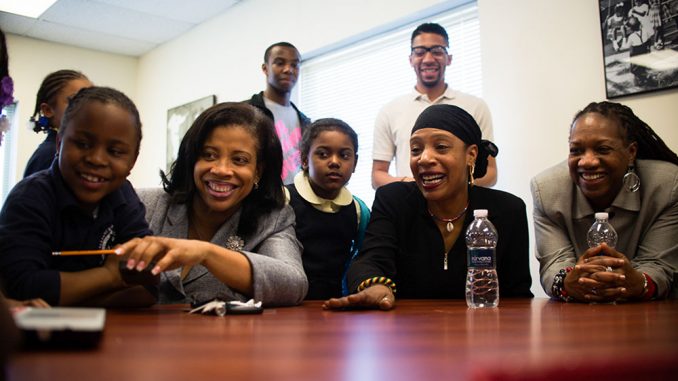
The Women’s Christian Alliance is fighting to continue its 95-year run as a nonprofit located several blocks from Main Campus following the city’s Department of Human Services’ shift of authority in the foster care system that staffers said inhibits its financial means, used to serve the community.
DHS ushered in its Community Umbrella Agency last fall to give one organization in each district primary responsibility for case management of the foster care system in that area. DHS created the system in an effort to make local resources more accessible to children and their families and expects the CUA to collaborate with existing networks in the district, according to a statement on its website.
The WCA, a 501(c)(3) organization that receives the majority of its funding from the City of Philadelphia through DHS, was not appointed to be the CUA of District 22. Assuming that responsibility this July is NorthEast Treatment Centers, a behavioral health and social services agency with about 800 staff members.
WCA is located at the corner of 18th Street and Cecil B. Moore Avenue. Bishop Mary Palmer, who founded Samaritan Temple in North Philadelphia, said WCA is “a staple in the community,” as well as an African-American owned and operated establishment. Palmer, who is chair of the board of directors at WCA, said although WCA knows it has to adapt to the change, it won’t be easy.
“It’s emotional for our staff, because we have connected very well with our clients and not only our children, but our foster care parents and resource parents and because of the CUA, our cases have to flip to whatever the provider is in the area that they live,” Palmer said.
Now that WCA will not be a primary foster care provider in the area, Palmer added that “two thirds of [the] budget will be out of the window.” To keep its doors open, WCA will have to restructure by expanding some of its existing programs outside the realm of foster care. Palmer said her goal is that no one at WCA will be laid off due to their present financial instability, though she was forced to tell the staff they will receive 60 percent of their earned payroll this week.
“I’m grateful because when I made that announcement earlier today, most of our staff understands it and they love what they do,” Palmer said. “I am particularly proud of them, for still wanting to come to work understanding fiscally what that means. I am going to delay as best I can any additional restructuring, realignment that may need to be done fiscally, so that the 57 people I represent at WCA, that come here every day and do a fabulous job, will be rewarded with compensation.”
Palmer said members of the board at WCA are giving the majority of their time to the organization pro bono, though she said she’s often in the building around 30 hours a week. In her efforts to diversify programs offered by WCA, Palmer is attempting to expand the current education program in particular, along with the establishment of other social service programs. She’s reached out to City Council President Darrell Clarke and Councilwoman Marian Tasco, among other city officials, in an effort to receive support for those programs.
Steve Grilli of NorthEast Treatment Centers said as the CUA of the district, NET aims to partner with existing organizations. Though he said the organization is still reaching out, NET is interested in working with existing organizations in the area like WCA.
“We are very well-aware that the only way for this to be successful is to work with the organizations that are already there and know the district best,” Grilli said. “If there are services already being provided by organizations like Women’s Christian Alliance, we would set up subcontracts with them to continue the services they’re providing.”
John Holt, the treasurer of WCA’s board, said WCA has sent subcontracting proposals to a number of the CUA organizations, but there’s no guarantee they will be accepted. Along with NET, WCA has reached out to a neighboring CUA, Asociación Puertorriqueños en Marcha, Wordsworth and Turning Points for Children.
“Until there is a more finite understanding of what the arrangements will be, we have no idea what the funding dollars for this year will be,” Holt said.
Holt said WCA will need more private donors to contribute to the reinvented programs in order to keep WCA in operation.
Projects at WCA, like the recent contribution to Crayons for Haiti, a support effort for children with limited means, involved local children in a donation effort. Elementary to middle school-aged students learned about Haiti as a nation and contributed their own donation, whether handwritten letters or clothing they’d outgrown. Palmer said through initiatives like this, WCA aims not just to maintain local youth, but to encourage them to live exceptionally. She said she hopes WCA will establish successful relationships with donors soon.
“Maybe I’m a visionary, or I’m this crazy faith person, being a bishop in the Lord’s church – yes, God can do all things, I just wish he would hurry up with it,” Palmer said. “Anytime now would be great.”
Erin Edinger-Turoff can be reached at erin.edinger-turoff@temple.edu or on Twitter @erinJustineET.


Be the first to comment